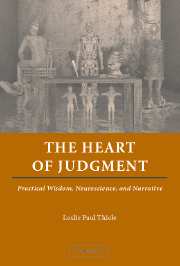3 - The Power of the Unconscious
Published online by Cambridge University Press: 20 July 2009
Summary
It is a profoundly erroneous truism, repeated by all copybooks and by eminent people when they are making speeches, that we should cultivate the habit of thinking of what we are doing. The precise opposite is the case. Civilization advances by extending the number of important operations which we can perform without thinking about them. Operations of thought are like cavalry charges in battle – they are strictly limited in number, they require fresh horses, and must only be made at decisive moments.
Alfred North WhiteheadAttempts to give singular priority to the highest and conceptually most sophisticated brain nodules in thinking and judgment may encourage those invested in these theories to underestimate the importance of body image, unconscious motor memory, and thought-imbued affect. … Thinking and judgment are already well under way before they enter the picture as conscious processes.
William ConnollyIt seems obvious that the more deliberate, well analyzed, and thoroughly examined practical judgments are, the better. Most scholars of decision-making operate on the assumption that the systematic application of reason will result in more “favorable consequences.” Who, after all, would suggest that judgments would be better made in a rash, thoughtless, or reactive manner? The development of good judgment, one presumes, is a matter of learning how carefully to weigh evidence, rationally reflect upon principles and probabilities, and meticulously assess context and contingencies to arrive at a well-considered account of the current situation and a suitable course of action.
- Type
- Chapter
- Information
- The Heart of JudgmentPractical Wisdom, Neuroscience, and Narrative, pp. 116 - 162Publisher: Cambridge University PressPrint publication year: 2006



